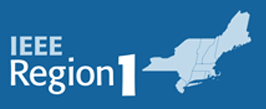
- This event has passed.
Spintronics – Perspectives and Challenges
April 26, 2022 @ 12:00 pm - 1:00 pm
Conventional CMOS technology has reached to the brink of its scaling limits and poses significant challenges for the development of next generation high-speed ultra-low power cost-effective memory and processing devices. The failure of Moore’s law on the technology roadmap has enforced the research community to explore alternative technology solutions to mitigate the problems.
In the post-CMOS era, spintronics shall emerge as a potentially viable interdisciplinary field with credible technological perspectives. Spintronic exploits an electron’s spin orientation and its associated magnetic moment as a state variable instead of a conventionally used charge in CMOS technology.
In general, the spintronic devices are layered structure of ferromagnetic materials and provide the nonvolatile storage options and manipulations of logic states. Spin transfer torque (STT) and spin orbit torque (SOT) devices using magnetic tunnel junctions (MTJs) have become strong contenders for the nonvolatile embedded memory architectures with the capability of implementing the concepts of “logic-in-memory” and “material-device-circuit co-design.” The spin torque devices offer the features of “universal memory” i.e., high speed, nonvolatility, high density, and low power, high endurance, CMOS process compatibility. Apart from the basic spin torque devices, the field of spintronics encloses all spin logic (ASL) devices, domain wall (DW) based devices, spin diodes, and spin FETs. The material and device level roadmaps for the field of spintronics suggest that the research work is at the infant stage and still require different elemental spin device developments with the understanding of associated underlying physics. In addition, the accurate models for the spintronic devices imitating the effect of stochastic behaviour and PVT variations need to be explored. Spintronics based architectures are being considered for computing applications such as bio-inspired computing and quantum computing. These spintronics based novel computing approaches find applications in image processing and provides efficient solution to the complex computing problems.
Speaker(s): Dr Brajesh Kaushik,
Room: Presentation Center, Bldg: 965, 1000 River Road, Essex Junction, Vermont, United States, 05452, Virtual: https://events.vtools.ieee.org/m/312221

